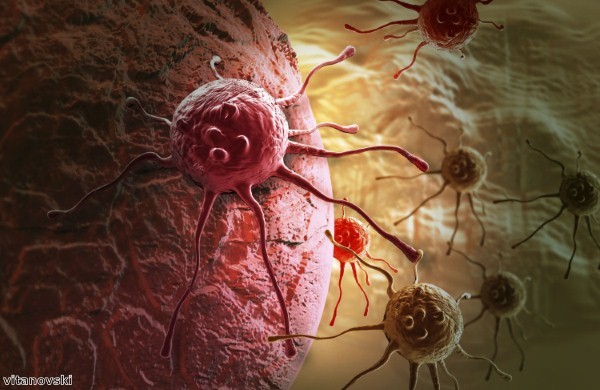New research conducted at the Translational Genomics Research Unit (TGen) has identified a key protein that helps prevent the destruction of lung cancer tumours, which could make radiation treatment and chemotherapy more effective.
Non small cell lung cancers (NSCLCs) account for 87 out of 100 lung cancers in the UK. Lung cancer is the second most common cancer diagnosed in the UK and the most common cause of cancer death in the UK, accounting for more than one in five deaths from the disease.
Platinum-derived chemotherapeutics, such as cisplatin, or radiation therapy are often used to treat the disease in the absence of more effective targeted therapies.
Studies previously conducted at TGen have shown that excessive activation of a cellular signaling mechanism known as TWEAK-Fn14 is linked to the survival and spread of cancer cells.
In a new study, published in the scientific journal Molecular Cancer Research, researchers found that a protein called Mcl-1 helps enable TWEAK-Fn14, which in turn helps protect NSCLC tumours from being destroyed by radiation and drugs.
"Our study demonstrates that the expression of Mcl-1 is necessary to promote the TWEAK-mediated survival of NSCLC tumor cells," said Dr Timothy Whitsett, an assistant professor in TGen's Cancer and Cell Biology Division, and the study's lead author. "By deactivating Mcl-1, we believe we can give these lung cancer patients a better response to standard therapy."
A drug called EU-5148 was used to block Mcl-1 function and halt the TWEAK-Fn14 cellular signaling mechanism. Inhibition of Mcl-1 enhanced chemo- and radio-sensitivity in NSCLC cells.
Dr Nhan Tran, an associate professor in TGen's Cancer and Cell Biology Division, and the study's senior author, said the TWEAK-Fn14 cellular pathway and the Mcl-1 protein are potential therapeutic interventions.
He added that bypassing these mechanisms would make it more difficult for lung cancer cells to evade therapies.
According to the team, more research is needed into the Mcl-1 and TWEAK-Fn14 mechanism. Clinical trials would follow, hopefully leading to more effective treatments that could reduce lung cancer mortality.

